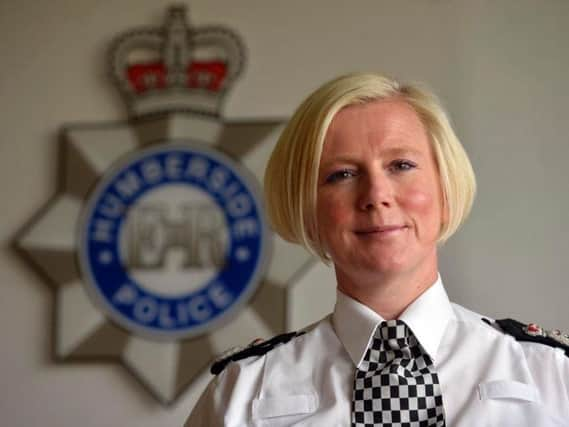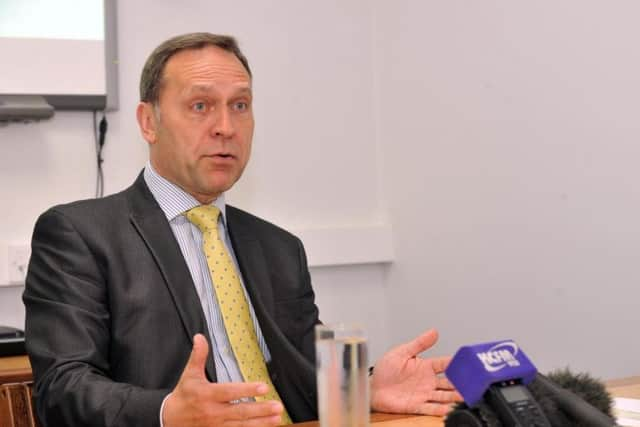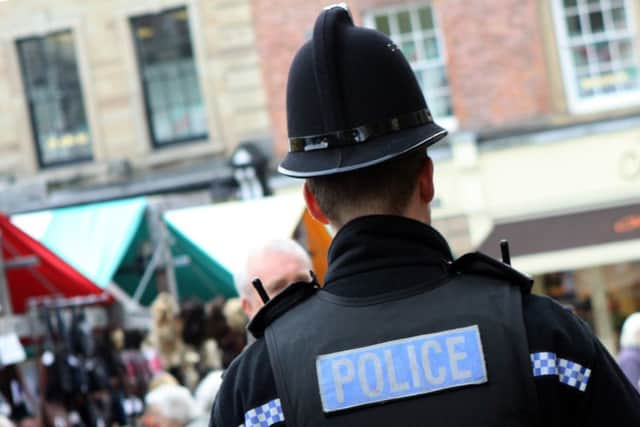'˜Failure of leadership' as Yorkshire police force lets down vulnerable victims


In a damning indictment, Her Majesty’s Inspectorate of Constabulary (HMIC), said it was “a cause of great concern” that recurring issues at Humberside Police had not been addressed.
Inspectors gave the force an “inadequate” grading for protecting vulnerable people, a step down from “requires improvement” last year, while overall its effectiveness was judged as requiring improvement for the second year running.
Advertisement
Hide AdAdvertisement
Hide AdHumberside was one of 13 forces, including neighbouring South Yorkshire, told it required improvement in how it keeps the public safe. West Yorkshire and North Yorkshire were among the 28 forces described as ‘good’ by HMIC.


Nationally, the Government agency warned that in some forces victims are being let down, criminal cases shelved and suspects left untracked as police fail to carry out basic functions.
Lamenting the “potentially perilous” state of British policing, it said the public was being left at unacceptable risk as a minority of forces artificially suppress demand.
HMI Zoe Billingham stopped short of saying the service was in crisis, but warned: “We are leading to a very serious conclusion regarding the potentially perilous state of British policing in this report.
Advertisement
Hide AdAdvertisement
Hide Ad“Over the last few years, HMIC has said consistently that police forces were managing well in increasingly difficult circumstances.


“Nonetheless, today, I’m raising a red flag to warn forces of the consequences of what is, to all intents and purposes, an unconscious form of rationing of police services.”
In its report on Humberside Police, HMIC said the force “routinely fails to identify” vulnerable victims and its response to those needing urgent help is sometimes “unacceptably delayed”.
Justine Curran announced her immediate retirement last month, after being asked to consider her position by police and crime commissioner Keith Hunter.
Advertisement
Hide AdAdvertisement
Hide AdMr Hunter, who was elected last year, made the move after talking to HMIC inspectors and getting the results of a survey which revealed 70 per cent of staff lacked confidence in their most senior officer.


Inspectors found an “inconsistent” approach to calls from victims of crime, which could mean vital evidence being lost.
At the time of the inspection half the domestic abuse incidents were still waiting to be allocated after 24 hours, including some where there were “clear features of risk to victims.”
It also found the quality of investigations into crimes like theft was “inconsistent” and sometimes “poor” due to a lack of supervision
Advertisement
Hide AdAdvertisement
Hide AdHM Inspector of Constabulary Mike Cunningham said they specifically drew the force’s attention in 2015 to where improvements were needed. He said: “At the time of the inspection these areas had still not been improved, which is a cause of great concern.”


Mr Hunter said the “inadequate” grading was “simply not acceptable” and was “a sign of a failure of leadership and planning at the highest level of the force.” He said it was vital the force acknowledged its mistakes.
Temporary chief constable Garry Forsyth said they had made “huge leaps” since the inspection. They had been judged “good” in areas including preventing crime and tackling anti-social behaviour.
He said: “We know there’s more to do and we are determined to get this service to good status and then outstanding, but it’s a long-term plan.”
Advertisement
Hide AdAdvertisement
Hide AdSouth Yorkshire Police, which has been beset by a series of recent controversies and last year saw its chief constable forced to retire over comments made after the Hillsborough inquests, was also criticised by inspectors.
It was said to have made a “step backwards” because of changes to neighbourhood policing which “weakened its ability to be effective in tackling threats”.
The changes made in 2015 meant that teams of local beat bobbies were merged with response units in what became known as ‘local policing teams’.
But, HMIC said, officers were regularly being called away to cover other duties, meaning they did not have time to patrol locally, engage with residents or solve problems in communities around South Yorkshire.
Advertisement
Hide AdAdvertisement
Hide AdThe report said: Because of the need to answer demand from response policing the current LPT structure in South Yorkshire Police is becoming disconnected from neighbourhood policing.”
Mr Cunningham said the force still had “substantial improvements” to make despite being the subject of a critical report last year.
And he said the force had “significant backlogs for the examination of digital media devices, such as mobile phones and tablets”, recovered as part of an investigation.
But he said it had a good understanding of the risks posed by serious and organised crime, building positive working relationships with partner agencies to share information and keep the community safe.
Advertisement
Hide AdAdvertisement
Hide AdWest Yorkshire Police was rated ‘good’ for the way it keeps people safe, but told it had to do more to prevent crime.
Yorkshire’s biggest police force was given the second highest category of four, for investigating crime, protecting the vulnerable and tackling serious and organised crime.
But it was judged by the watchdog’s inspectors to require improvement in preventing crime and tackling anti-social behaviour.
In HMIC’s report, published today, the force was said to be doing well at tackling serious and organised crime, including newer threats such as human trafficking, child sex abuse and human trafficking.
Advertisement
Hide AdAdvertisement
Hide AdInspectors added that good progress had been made in protecting the vulnerable and supporting victims, with an increase in staff dedicated to safeguarding.
Though it said the force had a good understanding of wider threats, it said that “at a local level it lacks the means to understand its changing and emerging communities”.
Among the issues was that local bobbies on the beat on safer neighbourhood teams “felt neglected and under-supported by the force”, partly due to the high number of officers being moved to other tasks.
West Yorkshire Police was also criticised for ‘poorly structured’ problem-solving practices and a failure to use new powers to tackle anti-social behaviour.
Advertisement
Hide AdAdvertisement
Hide AdIt recorded substantially more crimes than other forces, 92 per 1,000 population compared to an average of 68 in the year to June 30. This prompted claims this year that it was the crime capital of England and Wales, though the force says a rise in offences is largely due to the way they are recorded.
North Yorkshire Police, the constabulary for England’s largest and safest county, was rated good in all areas apart from how it tackles serious and organised crime.
HMI Mike Cunningham said: “The force is good at preventing crime and anti-social behaviour, with a strong focus from the police and crime commissioner and the chief constable on protecting neighbourhood policing.”
Deputy Chief Constable Lisa Winward said: “The positive report shows how our teams of officers, police staff, special constables and volunteers are working effectively to detect and deter criminality, manage offenders and prevent re-offending, as well as dealing with anti-social behaviour with a strong commitment to neighbourhood policing.
Advertisement
Hide AdAdvertisement
Hide Ad“This is reflected in the national crime statistics where North Yorkshire is currently the safest place in England, which is a position we are determined to maintain.
“Our teams are out there day and night, all year round, targeting known and suspected offenders who wrongly think they can freely operate in North Yorkshire.”